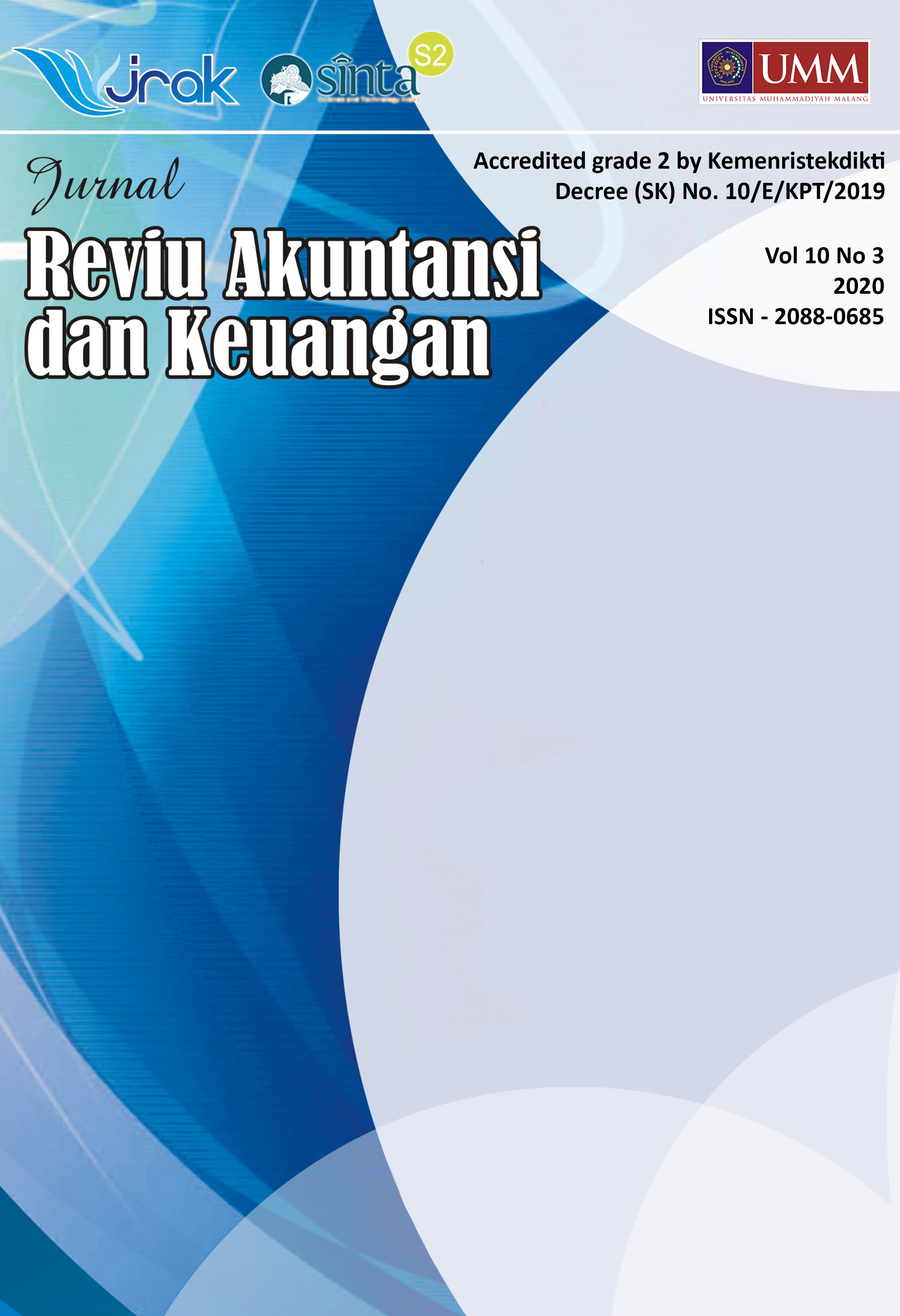Covid-19 Learning Concerning Financial Planning Importance and Household Accounting
DOI:
https://doi.org/10.22219/jrak.v10i3.13554Keywords:
Covid-19 Learning, Household Accounting, Household Financial Planning Importance, New MindsetAbstract
This study aims to identify the financial planning activities of individual households in dealing with Covid-19. Two regression models were used for the hypothesis test. Data were collected using a questionnaire with multi-staged methods, namely direct distribution and telephone. There are 59 individual household respondents in Malang Raya (Malang Regency, Malang City, and Batu City) - East Java, but 54 are complete and processed. The results showed that a significant relationship of individual behavior in household financial planning importance was strongly influenced by saving activities, focus on expenditures, emergency funds preparation, and attention to credit, so basic assumptions for expanding household financial planning based on individual household perceptions of responding to Covid-19 proved to be empirically consistent. Furthermore, household financial planning is the main factor in applying household accounting. This evidence has common goals for implementing a new mindset to responsibilities control of household financial transactions. A situation that is internal to the Covid-19 epidemic which requires social distancing of changes in the needs of a physical nature (economic shock)
Downloads
Downloads
Published
Issue
Section
License

Jurnal Reviu Akuntansi dan Keuangan is licensed under a Creative Commons Attribution-NonCommercial-ShareAlike 4.0 International License.
Authors who publish with this journal agree to the following terms:
- Authors retain copyright and grant the journal right of first publication with the work simultaneously licensed under a Creative Commons Attribution-NonCommercial-ShareAlike 4.0 International License that allows others to share the work with an acknowledgement of the work's authorship and initial publication in this journal.
- Authors are able to enter into separate, additional contractual arrangements for the non-exclusive distribution of the journal's published version of the work (e.g., post it to an institutional repository or publish it in a book), with an acknowledgement of its initial publication in this journal.
- Authors are permitted and encouraged to post their work online (e.g., in institutional repositories or on their website) prior to and during the submission process, as it can lead to productive exchanges, as well as earlier and greater citation of published work (See The Effect of Open Access).










